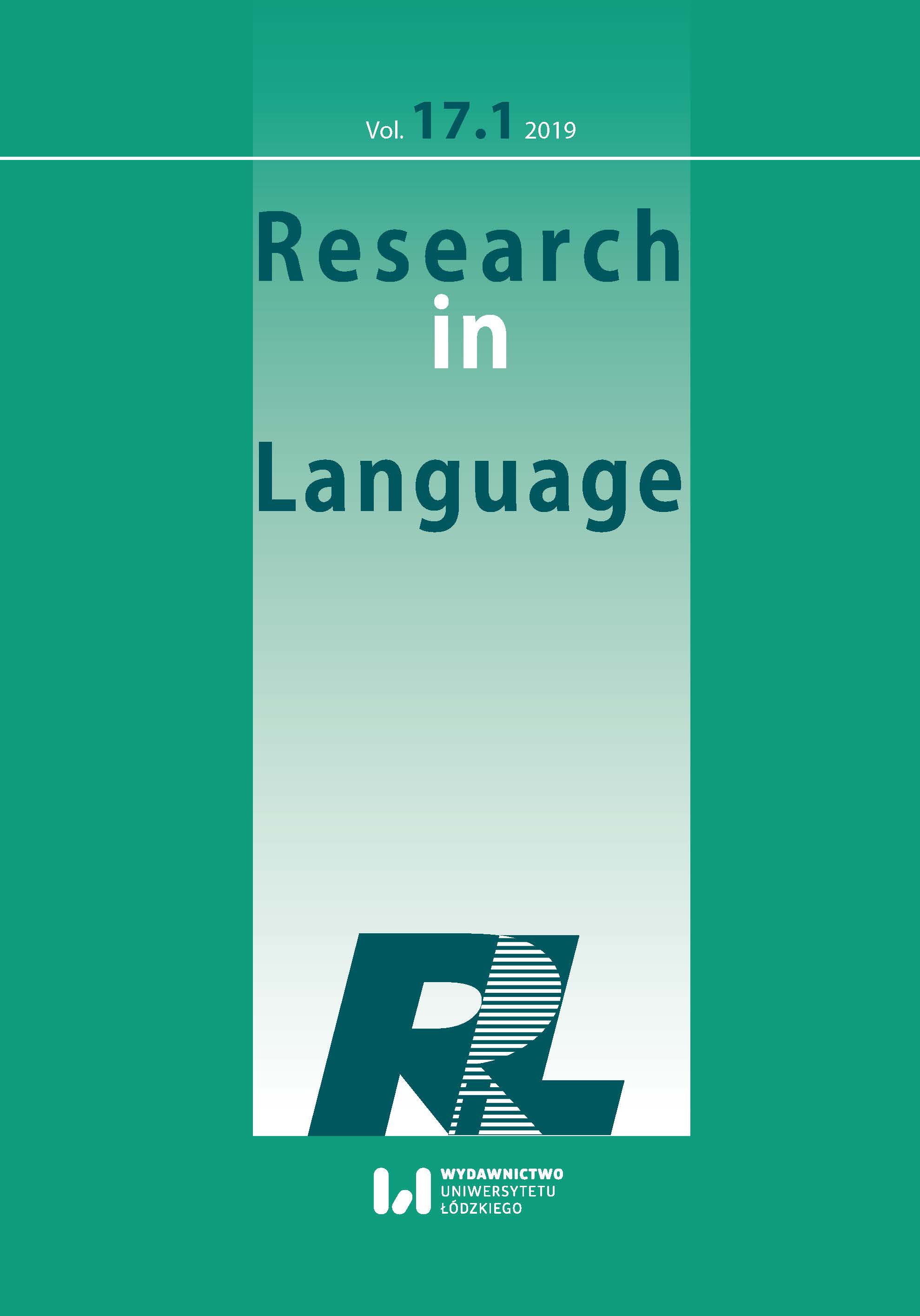Marriage, Liberty and Constitution: a Corpusassisted Study of Value-Laden Words in Legal Argumentation
DOI:
https://doi.org/10.2478/rela-2019-0006Keywords:
legal argumentation, judicial discourse, evaluative language, US Supreme Court, same-sex marriageAbstract
This paper investigates the interplay between judicial argumentation and evaluative or emotive language identified in two US Supreme Court landmark cases on the right of same-sex couples to marry. The analysis of both majority and dissenting opinions leads to two main observations. First, marriage and liberty are indeed emotive words and they represent two major sites of contention between the concurring and dissenting judges. Second, there are important differences within the argumentative strategies employed by the judges. While (re)defining the concepts remains the major argumentative goal for both types of opinion, the majority opinions tacitly integrate the redefined concept of marriage into their argumentation. It is the dissenting opinions that explicitly raise the issue of (re)definition in order to defend and retain the original sense of marriage.
References
Alba-Juez, Laura and Thompson, Geoff. 2015. ‘The Many Faces of Evaluation.’ In Geoff Thompson and Laura Alba-Juez (eds), Evaluation in Context [Pragmatics and Beyond New Series 242], 3-23. Amsterdam: John Benjamins.
Google Scholar
Baker, Paul. 2006. Using Corpora in Discourse Analysis. London: Continuum.
Google Scholar
Black, Henry. 1990. Black’s Law Dictionary with Pronunciations. New York: West Publishing Company.
Google Scholar
Finegan, Edward. 2010. ‘Corpus Linguistics Approaches to ‘Legal Language’: Adverbial Expression of Attitude and Emphasis in Supreme Court Opinions.’ In Malcolm Coulthard and Alison Johnson (eds.), The Routledge Handbook of Forensic Linguistics, 65-77. London and New York: Routledge.
Google Scholar
Gallie, Walter. 1955. Essentially Contested Concepts. Proceedings of the Aristotelian Society 56. 167-198.
Google Scholar
González Ruiz, Victor. 2005. ‘Changing the Law on Marriage: The Semantics of Tolerance.’ In Krzysztof Kredens and Stanisław Goźdź-Roszkowski (eds.), Language and the Law: International Outlooks, 227-237. Frankfurt: Peter Lang.
Google Scholar
Goźdź-Roszkowski, Stanisław. 2013. ‘Legal Terms and Meaningful Units. A Corpus-based Study of the Term Discovery in the United States Supreme Court Opinions.’ In Barbara Lewandowska-Tomaszczyk and Marcel Thelen (eds.), Translation and Meaning, Part 10, 299-306. UPM Universitaire Pers Maastricht.
Google Scholar
Goźdź-Roszkowski, Stanisław. 2018a. ‘Facts in Law: a Comparative Study of Fact That and its Phraseologies in American and Polish Judicial Discourse.’ In Stanisław Goźdź-Roszkowski and Gianluca Pontrandolfo (eds.), Phraseology in Legal and Institutional Settings. A Corpus-based Interdisciplinary Perspective, 143-159.London. Routledge.
Google Scholar
Goźdź-Roszkowski, Stanisław. 2018b. ‘Between Corpus-based and Corpus-driven Approaches to Textual Recurrence. Exploring Semantic Sequences in Judicial Discourse.’ In Joanna Kopaczyk and Jukka Tyrkko (eds.), Patterns in Text: Corpus-driven Methods and Applications. [Studies in Corpus Linguistics 82], 131-158. Amsterdam: John Benjamins.
Google Scholar
Goźdź-Roszkowski, Stanisław. 2018c. Values and Valuations in Judicial Discourse. A Corpus-assisted Study of (Dis)respect in US Supreme Court Decisions on Same-sex Marriage. Studies in Logic, Grammar and Rhetoric 53 (66). 61-79.
Google Scholar
Hart, Herbert. 1961. The Concept of Law. Oxford: Oxford University Press
Google Scholar
Heffer, Chris. 2007. ‘Judgement in Court: Evaluating Participants in Courtroom Discourse.’ In Krzysztof Kredens and Stanisław Goźdź-Roszkowski (eds.), Language and the Law: International Outlooks, 145-179. Frankfurt am Main: Peter Lang GmbH.
Google Scholar
Leech, Geoffrey. 1974. Semantics. Harmondsworth: Penguin.
Google Scholar
Macagno, Fabrizio. 2016. Defining Marriage: Classification, Interpretation, and Definitional Disputes. Informal Logic, vol. 36 (3). 309-332.
Google Scholar
Macagno, Fabrizio and Douglas Walton. 2014. Emotive Language in Argumentation. Cambridge University Press.
Google Scholar
Mazzi, Davide. 2010. ‘This Argument Fails for Two Reasons... A Linguistic Analysis of Judicial Evaluation Strategies in US Supreme Court Judgements.’ International Journal for the Semiotics of Law 23 No. 4: 373-385.
Google Scholar
Partington, Alan, Alison Duguid and Charlotte Taylor. 2013. Patterns and Meanings in Discourse. Theory and Practice in Corpus-Assisted Discourse Studies. Amsterdam / Philadelphia: John Benjamins.
Google Scholar
Partington, Alan. 2004. ‘Corpora and Discourse: A Most Congruous Beast.’ In Alan Partington, John Morley and Louann Haarman (eds.), Corpora and Discourse, 11-20. Bern: Peter Lang.
Google Scholar
Partington, Alan.1998. Patterns and Meanings. Using Corpora for English Language Research and Teaching. Amsterdam/Philadelphia: Benjamins.
Google Scholar
Perelman, Chaïm and Lucie Olbrechts-Tyteca. 1969. The New Rhetoric. A Treatise on Argumentation. Notre Dame: University of Notre Dame.
Google Scholar
Rayson, Paul. 2008. From Key Words to Key Semantic Domains. International Journal of Corpus Linguistics. 13(4). 519-549.
Google Scholar
Stevenson, Charles. 1944. Ethics and Language. New Haven, CT: Yale University Press
Google Scholar
Thompson, Geoff and Susan Hunston. 2000. ‘Evaluation. An Introduction.’ In Susan Hunston and Geoff Thompson (eds.), Evaluation in Text. Authorial Stance and the Construction of Discourse, 1-27. Oxford: OUP.
Google Scholar
Solan, Lawrence. 1993. The Language of Judges. Chicago IL: The University of Chicago Press. doi: 10.7208/chicago/9780226767895.001.0001
Google Scholar
Szczyrbak, Magdalena. 2014. Stancetaking Strategies in Judicial Discourse: Evidence from US Supreme Court Opinions, Studia Linguistica Universitatis Iagellonicae Cracoviensis 131. 1-30.
Google Scholar
Downloads
Published
How to Cite
Issue
Section
License

This work is licensed under a Creative Commons Attribution-NonCommercial-NoDerivatives 4.0 International License.










